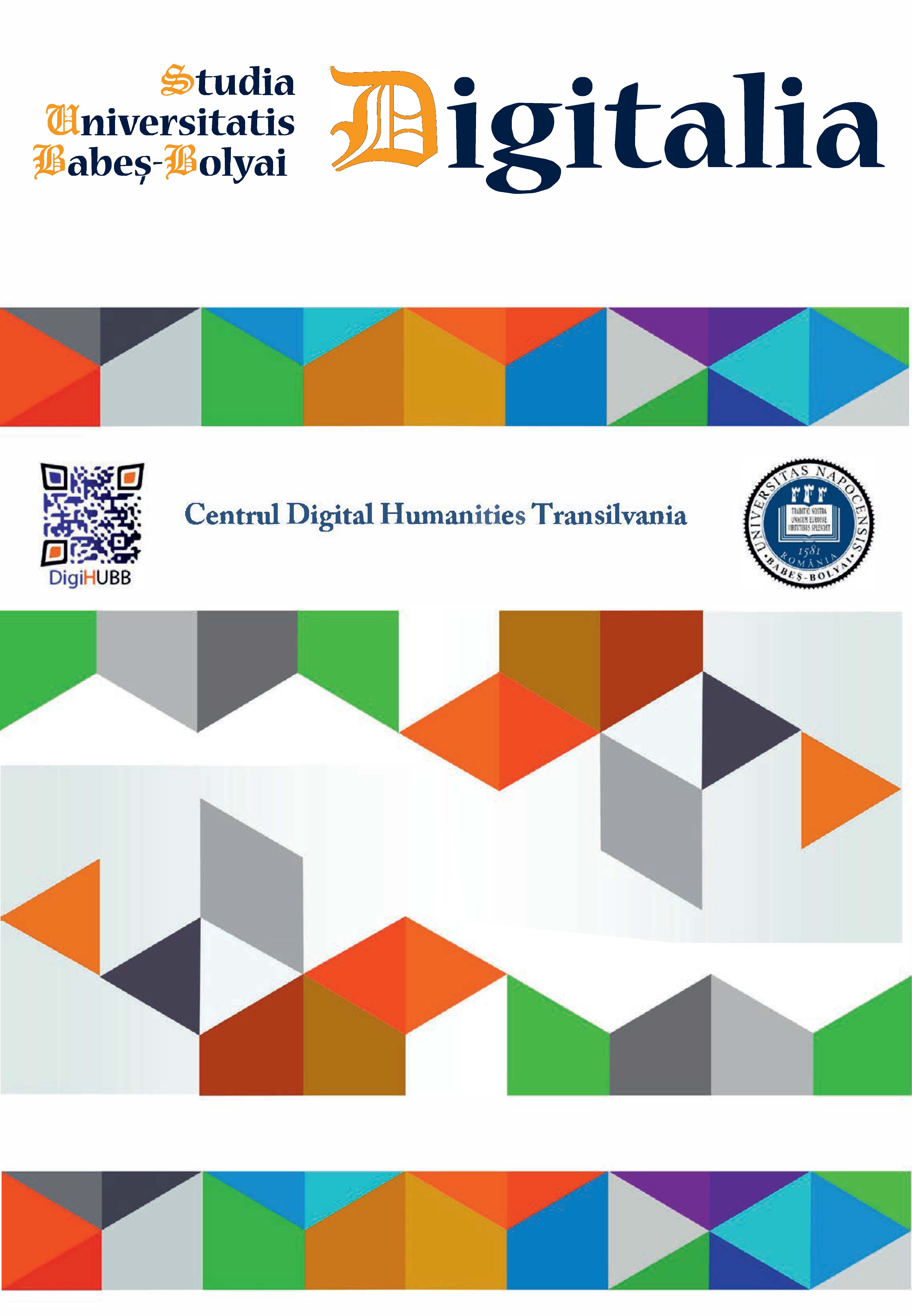DIGITAL ECONOMY AND HUMANITIES
DIGITAL ECONOMY AND HUMANITIES
Author(s): Liana Stanca, Christian Schuster, Corina MoldovanSubject(s): Social Sciences, Language and Literature Studies, Economy, Literary Texts, Fine Arts / Performing Arts, Geography, Regional studies, Library and Information Science, Maps / Cartography, Information Architecture, Electronic information storage and retrieval, Applied Linguistics, Communication studies, Philology, ICT Information and Communications Technologies
Published by: Studia Universitatis Babes-Bolyai
Summary/Abstract: As editors of Studia Universitatis Babeș-Bolyai Digitalia, we are proud to announce the publication of the third issue of Studia Universitatis Babeș-Bolyai Digitalia, the first Romanian academic journal dedicated entirely to the Digital Economy and Humanities research and practice. The main aims of Studia UBB Digitalia are motivating and promoting the research in the interdisciplinary field of Digital Economy and Humanities, especially in Europe, in general, and Romania, in particular. Publishing a new journal on Digital Economy and Humanities is indeed an audacity, given that the field is still seen, after decades of evolution, as an odd hybrid between seemingly incompatible realms of scientific endeavour. Bridging this apparent dichotomy has been the focus of many researchers in the economy, humanities and the computer sciences for the past 50 years, but still the boundaries between the realms exist and grow strong, especially in the institutional practice of universities. Trying to break this barrier proves to be even harder in Romania, where the classification of “traditional” fields of scientific research dictate the distribution of research funds and the evaluation process of research output. Chances are, if an historian publishes an article on his research using computational methods in a journal for computer sciences, that his or her results cannot be “capitalised” in his own field; likewise, computer scientists may see their work in Digital Economy and Humanities not accounted for, if published elsewhere than in well-known CS journals. Digital technologies in economy area have impacted the modern workplace and stimulated the evolution of new forms of management. We are interested how big data and digital technologies are changing how we work and the world we live in. The digital phenomenon is multifaceted and changes the way organizations compete and innovate. It threatens long-lasting business models, and opens up new ways of creating and capturing value. As such, it is not only clearly relevant for management and IT&C practitioners, but also centrally important for management scholars. Digital Humanities and Economy: digital economy is an interdisciplinary field that also uses contributions from digital humanities: big data to understand narratives and plots, methods such as algorithmic analysis of text / videos, advanced visualization techniques, 3-D mapping of texts, digital economy tools for analyzing business and management content, communications, and behavior. The digital humanities sit at the crossroads of computer science and the humanities.
Journal: Studia Universitatis Babeș-Bolyai - Digitalia
- Issue Year: 63/2018
- Issue No: 1
- Page Range: 5-6
- Page Count: 2
- Language: English

